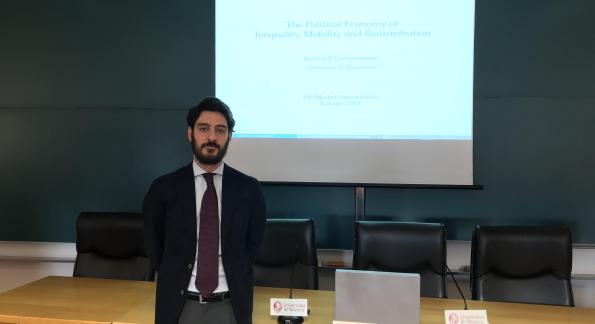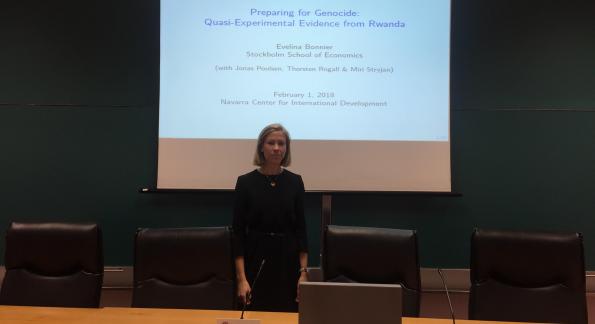
Technology has changed our workplace. Since the start of the 1980s the aggregate labor share has decreased by 6 percentage points in the United States. Many fear that a day will come in which most jobs will be automated. In many industries, workers have been replaced by machinery that can perform their jobs faster, cheaper and arguably, better.
However, is the decline in the labor share common across industries? Luis DÃez Catalán, a PhD candidate from the University of Minnesota, aims to answer this question in his paper titled: The Labor Share in the Service Economy, w...

What determines the level of taxation and redistribution in a democratic political environment? Recently, United States’ President Donald Trump proposed the largest tax overhaul in decades. Some argue that this measure is predicted to mostly benefit those in the upper income quintile, therefore increasing inequality. Perhaps, this contrast the period between the 1950s and the 1980s when we saw a clear increase in the welfare state in the U.S.
Generally, economists believe that higher inequality fosters pressures to increase taxes and redistribution. While it is true that i...

From April 7 to mid-July 1994, humanity was witness to one of the worst acts of barbarism in history: the Rwandan Genocide. This atrocious event was carried out, not only by the army, but also by butchers, herdsmen, bakers, businessmen, bus drivers, farmers, etc. To this day, a question remains: what makes 430,000 civilians grab all sorts of items as weapons to kill nearly one million of their fellow countrymen in just one hundred days? To understand this one must look back to the years and months prior to it and wonder how those in power were able to instill such hatred towards the T...






